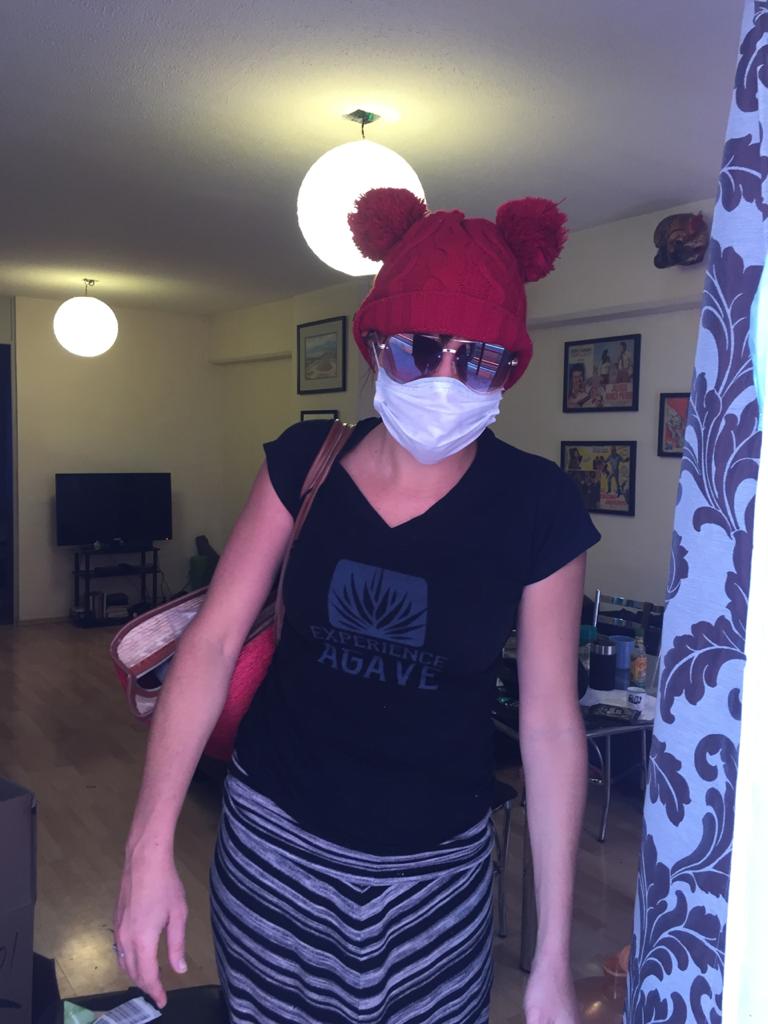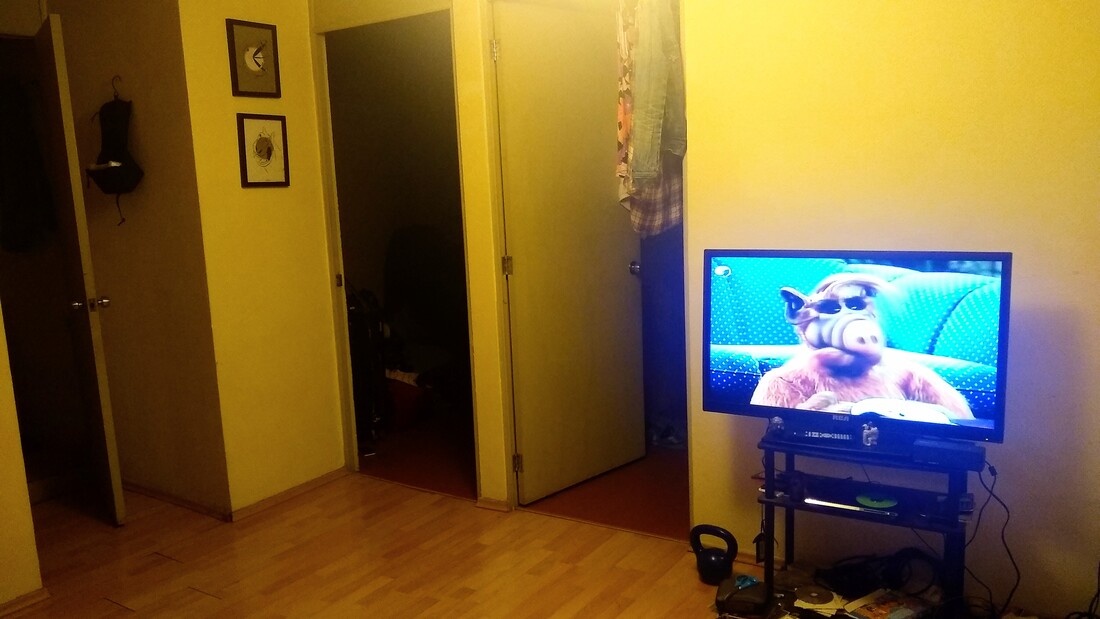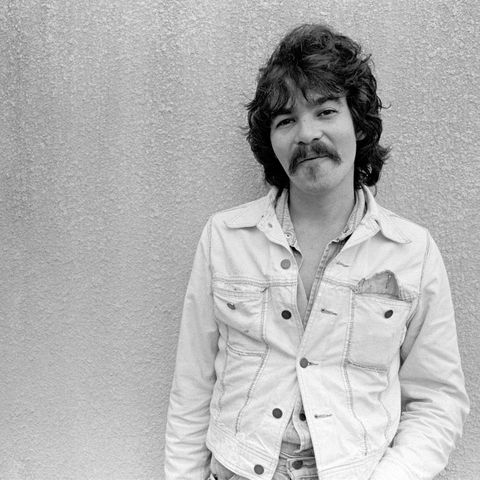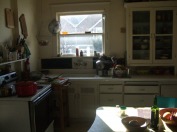A city stripped of all these wonders is a dangerous warren of concrete and stone. These days, the thought that you might run into a stranger is not titillating, but terrifying. The last week I was in downtown Mexico City, I didn't go outside at all and I got pretty lazy about even walking up to the top story to watch the sunset.
It concerned me that I no longer even cared. In the afternoon, the sun would hit the narrow walkway outside the door and I'd think about trying to sit in it, but then I wouldn't. My skin turned from tan to a nasty shade of yellow and developed acne. I thought it might be from lack of sunlight or maybe from stress.
I was trying to decide if I should stay or go, and it was deeply stressful. You see, I wasn't miserable in the apartment. I missed so many things abut the rest of the world. I was deeply worried for many of my friends and society at large. But I had a sweet little routine and the best companionship. The apartment could feel stifling on occasion, but it more often felt safe and cozy. I had some work to attend to online and I felt compelled to cook and wash dishes. Other than that, I had no real responsibilities.
As a mildly agoraphobic person with social anxiety who often feels overwhelmed by the logistics of my life, it was peaceful to know that I didn't have to deal with anyone or anything. Other than Poodles, who was a comfort and never-ending source of amusement.
I don't like airports and I have a near-phobia of customs agents and immigration. And I'm legitimately (overly) scared of the virus. So the idea of braving all those things to return to a life of solitude...Well, that didn't sound overwhelmingly appealing. In fact, it sounded terrifying on every level. And I hated the idea of saying goodbye and not knowing when we'd reconvene. Thinking about it was like falling into a bottomless pit. I was also worried about my mom. If I stayed in Mexico, I'd be able to go help her if she got sick.
I didn't want to go. But of course there were reasons. Poodles made me feel welcome, but I worried about interloping on a relatively small, confined space for an indefinite period of time. I worried also that being inside so long might exacerbate my deppressive tendencies. I was also experiencing the occasional spell of claustrophobia, which, ironically, felt very similar to agoraphobia--a panicked feeling of not being able to breathe.
On the positive side, I already had a ticket home. My two cats were waiting for me, as well as my house and garden. And miles of woods and fields to roam.
It was beyond bizarre to be faced with two such extreme and nonsensical options. In the end, I chose to leave. It wasn't that I had better reasons to leave than to stay, but rather that I had to choose something. It almost felt like flipping a coin.
I'd given some thought to the morality of flying. But I felt okay on my end because I'd been so careful. I hadn't had contact with anyone other than Poodles in a week, and had only gone outside two or three times in the week before that. I was concerned for my friend Snowball, who had very kindly offered to pick me up at the airport. But I figured the virus wouldn't have a chance to really take root during my six hour trip and that at least my potential for contagiousness would be lower. I wore an outer layer of clothing I'd remove before getting into the car, and brought two masks. And of course I was completely obsessive with the hand sanitizer.
After a tearful goodbye to Poodles, I got into the cab, clutching my hand sanitizer and wearing my mask. The driver showed me his mask, but said it was too hot to wear it. It was all downhill from there.
We'd seen posts on social media from people traveling on nearly empty flights, and news stories were backing that up. So I was imagining that the airport would be creepily empty. I was wrong.
Terminal 2 seemed to be at abut 50% capacity, which is still a lot of fucking people. And only abut 10% were wearing masks. Few people seemed to be making any effort to keep their distance, and airport security decided it was necessary to paw through my backpack. The agent touched everything, including my food.
Security agents took my temperature by holding a wand above my head and asked me to fill out a form declaring I hadn't recently been to China, Italy, or Iran, but I didn't witness any other precautions.
The waiting area for my flight was crowded, and the flight turned out to be at about 75% capacity. Most people were not wearing masks, including a couple of the Delta attendants. As we filed onto the plane, I overheard two other Americans grousing about how many people were on the flight--apparently they'd flown a week ago and it had been empty. I ended up seated in a row with another woman, though there was a set between us. At the outset of the flight, we were given ziplock bags of snacks and bottled water.
One advantage to spending three weeks inside the same four walls is that everything seems very interesting when you get out. On the cab ride to the airport, I'd been mesmerized to watch the half-empty city roll by. But my first glimpse of mountains nearly took my breath away. As we flew on over towers of whipped cream clouds and snowy plains, the beauty of the world seemed positively psychedelic.
Customs and immigration at Salt Lake City was fine, and I was relieved that I didn't have to get into a conversation with them about my suitcases full of tequila and valium. But I had to go back through TSA and they tore my carry-on apart again, taking 15 minutes to go through my stuff with a fine-tooth comb. And the airport didn't feel particularly sanitized. Smudges of god-knows-what besmirched the seats next to me in the waiting area. Very few people wore masks. All the TVs were blaring covid-19 horror stories as I cleaned my seat with an airplane bottle of rubbing alcohol.
I imagine other people's stories of nearly empty flights are valid, so I guess I just had bad luck on the draw. Twice. My flight from SLC to Oregon was at about 50% capacity, but the plane was tiny, so I was still sitting about two feet from another person. Again, hardly anyone was wearing masks.
Flying over Eugene, I looked down at the glittering lights of town dissipating out into the darkness where I live. And I wondered if I'd chosen correctly.
This pandemic is amplifying situations, forcing us all to make strange and seemingly unnatural choices.
What decisions have you been forced to make?
How are you dealing with sharing space?
How are you dealing with loneliness?




 RSS Feed
RSS Feed